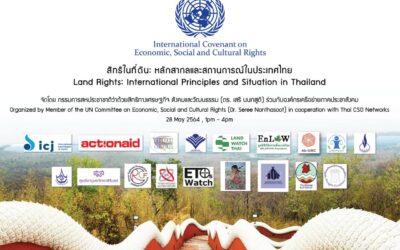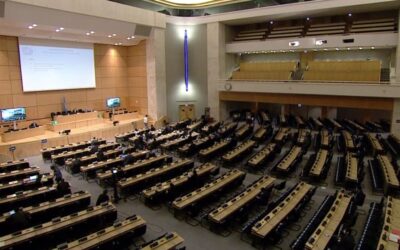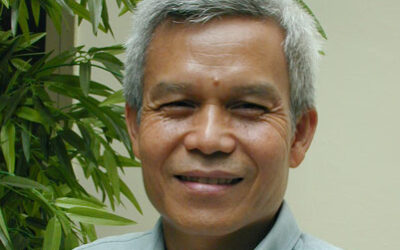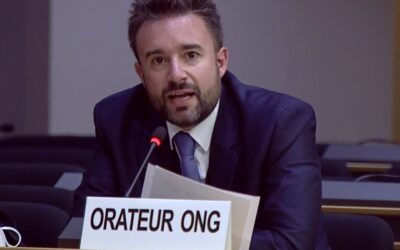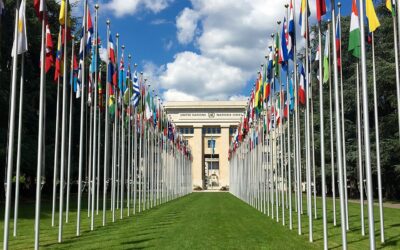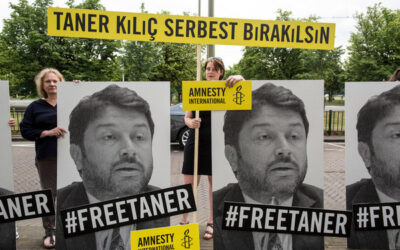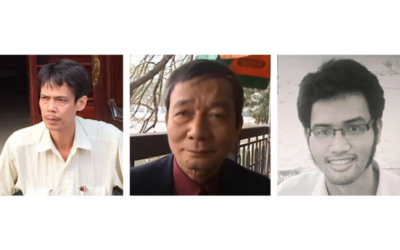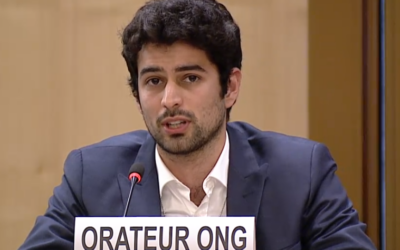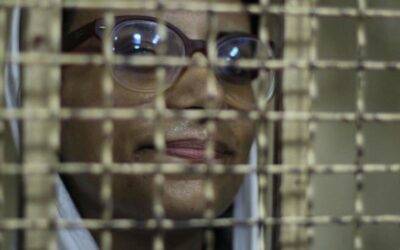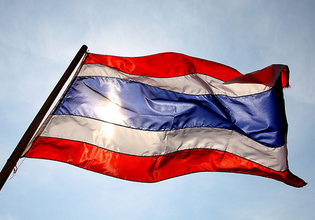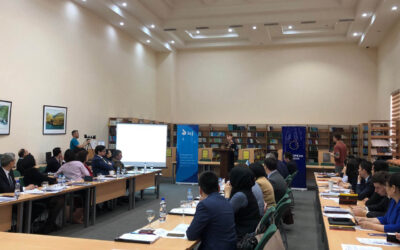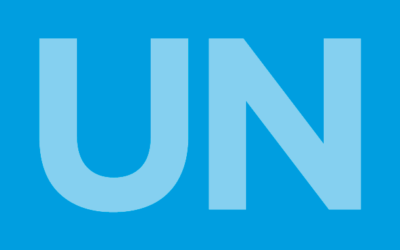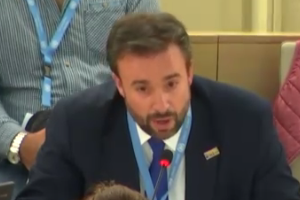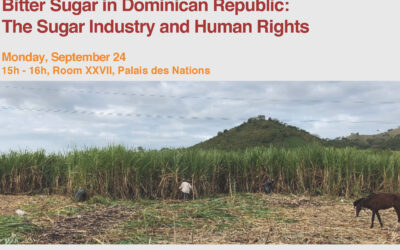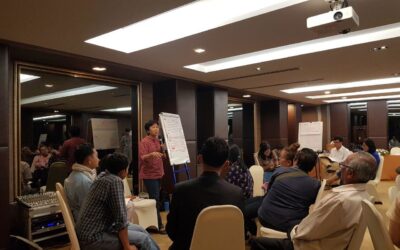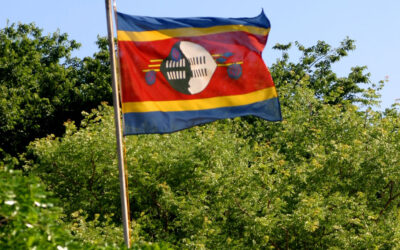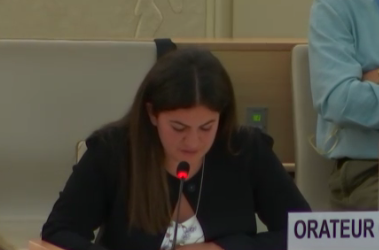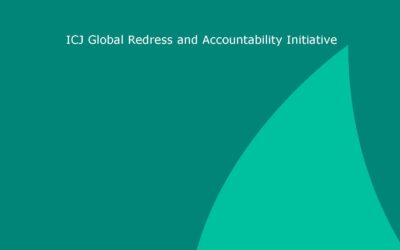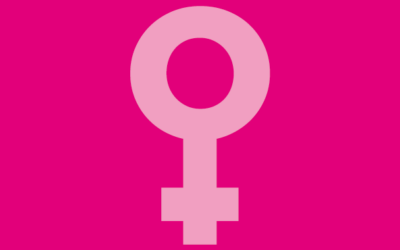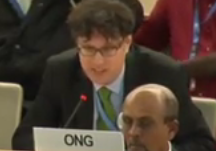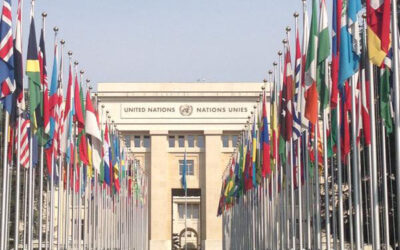Thailand’s laws and practices governing the rights of land users may result in unnecessary and disproportionate restrictions on various economic, social, and cultural rights, particularly for forest dwellers and indigenous communities, the ICJ said during discussions last week with members of Thai civil society as well as government authorities.
On 28 May 2021, the ICJ co-hosted a discussion on international human rights law and standards on land rights in Thailand, with 70 members of civil society organizations, human rights lawyers, and academics in attendance. On 4 June 2021, the ICJ spoke at a discussion on the same topic, organized by Thailand’s Ministry of Justice, bringing together 80 governmental officials from several Ministries.
“Thailand’s land regulatory laws do not adequately protect the rights of indigenous people to access their ancestral lands and natural resources and to conduct cultural practices,” said Sanhawan Srisod, ICJ Legal Advisor. “We hope the Thai government will improve its general policies for land use and tenure, especially for indigenous peoples and forest dwellers, in line with its obligations under international law.”
Dr. Seree Nonthasoot, member of the UN Committee on Economic, Social and Cultural Rights (CESCR) from Thailand, spoke at both discussions to introduce participants to the International Covenant on Economic, Social and Cultural Rights (ICESCR) to which Thailand is a party and the role of the CESCR. The CESCR is a body of independent experts from across the world established by ICESCR and tasked with providing authoritative interpretations of ICESCR in its body of jurisprudence.
“The CESCR recommended [that] Thailand […] effectively remove all obstacles to enjoyment of traditional individual and communal rights by ethnic minorities in their ancestral lands […] and ensure that forced evictions are only used as a measure of last resort. These should be addressed without any further delay,” said Dr. Seree Nonthasoot.
Specific issues highlighted by participants in the discussions included:
- Prosecution and Eviction: The use of laws ostensibly designed to counter climate change and forest conservation policies and legislatures, such as the Forest Act, the National Reserved Forests Act and the National Park Act, to prosecute forest dwellers and indigenous communities for trespassing and forcibly evict them from the land belonging to national reserved forests and national parks;
- Participation and Consultation: The inadequate participatory mechanisms and consultations with people affected by land-related policies and practices, in particular the increasing use of online mechanisms as the main platforms for consultation in Thailand, despite the low rate of access to the internet among affected communities;
- Judicial Recognition: The lack of explicit judicial recognition of historical and other indigenous forms of evidence and knowledge in order to establish validity of territorial claims;
- Impact of Tourism: The impact of tourism development projects on communities’ economic, social and cultural rights in land-related contexts, including on their traditional landownership and livelihood practices;
- Compensation and Assessment: The impact of large-scale land acquisitions in areas that had already been occupied or used, without carrying out adequate impact assessments and with inadequate compensation.
Sanhawan Srisod introduced participants to the CESCR’s draft General Comment No. 26, which is open for public comment until 27 July 2021. If a revised General Comment is adopted by the CESCR, it will provide an authoritative interpretation of States’ ICESCR obligations relating to land.
At the meeting’s conclusion, participants discussed advocacy strategies to strengthen Thailand’s legal frameworks once the draft General Comment is adopted by the CESCR.
Further reading
Thai Companies in Southeast Asia: Access to Justice for Extraterritorial Human Rights Harms
Joint submissions by ICJ and its partners to the Universal Periodic Review (UPR)

